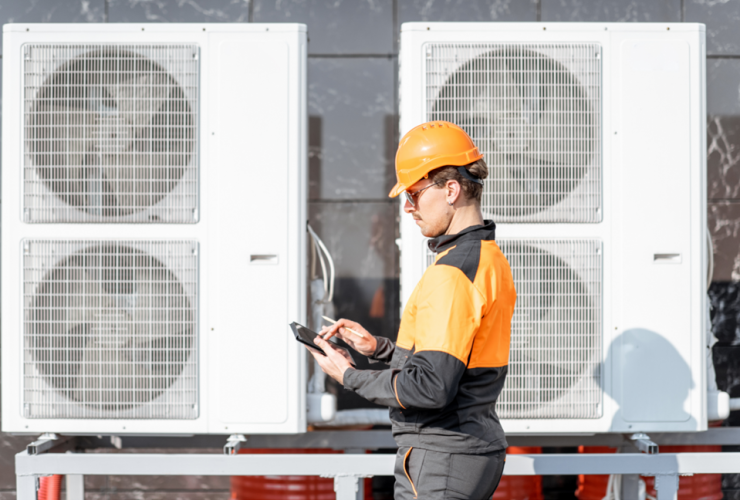
Government’s new Heat and Building Strategy
On Monday the Government announced the new Heat and Building Strategy.
The headline grabber, first up in the Government press release, is a plan from April 2022 for a £5,000 grant to homeowners through a £450M, 3-year boiler upgrade scheme to install low carbon systems such as heat pumps instead of gas boilers. More on which later.
If this were the only measure one would have to question where the commitment to a fabric first approach has got to, thankfully the Government go on to say the “£450 million Boiler Upgrade Scheme is part of more than £3.9 billion of new funding being announced today by the government for decarbonising heat and buildings. This will fund the next 3 years of investment through the Social Housing Decarbonisation Fund, the Home Upgrade Grant scheme, the Boiler Upgrade Scheme and the Heat Networks Transformation Programme and reducing carbon emissions from public buildings through the Public Sector Decarbonisation Scheme”. So the announcement builds on existing programmes which have a better fabric focus. Despite the complexity of the bidding process (Note for BEIS and Ricardo – please make it more straightforward and release error-free spreadsheets) the BEIS Wave I SHDF funds, at least, are focussing on Fabric First approaches and for that, are to be applauded.
Turning back to the headline, the press release states, “The government and industry will also work together to help meet the aim of heat pumps costing the same to buy and run as fossil fuel boilers by 2030, with big cost reductions of between a quarter and a half by 2025 expected as the market expands and technology develops”. Let’s hope that happens and soon, while it may just be a silicon chip, post-COVID, post Brexit blip, we have seen heat pumps with installation priced around £15K recently. Which does pose a question – replacing the boiler with a heat pump may be possible for a like for like equivalent price but what about the add on’s? Will, particularly, older radiator systems deliver the heat outputs or need replacing? Will system controls, thermostats and thermostatic valves be replaced to enhance efficiency? The final practical issue relates to hot water storage, the majority of boilers sold are Combis and have been for years many, many homeowners will struggle to find the space for a cylinder.
And lastly will £450m over 3 years, £150m a year, come anywhere near replacing boilers at scale. In 2019, before the pandemic, gas boiler sales were 1.67m boilers sold. We think £150m a year will fund 30,000 changes. We think challenging the housing sector, heating industry and individuals to think differently is a good thing and we support the Boiler Upgrade Scheme, but we are not sure heat pumps will be enough. Mike Foster – the Energy and Utilities Alliance Chief Executive said in Installer “The sheer scale (of boilers in use) demands that we use these systems to decarbonise, not plan to scrap them. Nearly nine out of ten households will not welcome the idea of ripping out their heating when it serves them well. So any decarbonisation of heat should focus on using our gas boilers and radiators. Clean gases such as biomethane and hydrogen offer the solution to decarbonisation of UK heat demand. Our industry has developed hydrogen-ready appliances, which can still be used with natural gas, ready for the government to give the go ahead.” We look forward to seeing how these systems might provide low Carbon alternative solutions.
News & Insights
Read the latest housing sector news, blogs, and commentary from ARK.

Building Safety
By Luke Beard ·The deadline for registering an existing higher risk building (HRB) with the regulator and submitting the required key building information …

Are you ready for the Supported Housing (Regulatory Oversight) Act 2023?
By Nick Sedgwick ·If you are a supported housing provider, you need to be aware of the new regulations that are about to …

International Women’s Day 2024
By Chris Seeley ·The theme of International Women’s Day 2024 is the question ‘What does it mean to truly inspire inclusion?’, we asked our …
Subscribe to our newsletters for the latest industry insights
Our newsletters and reports will keep you updated on topical issues from the sector as well as what’s happening at ARK.
